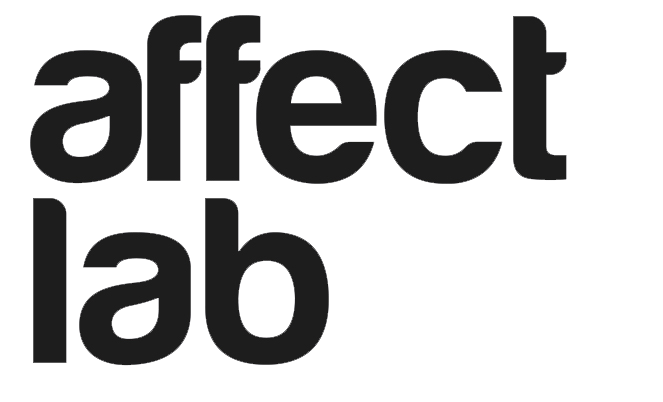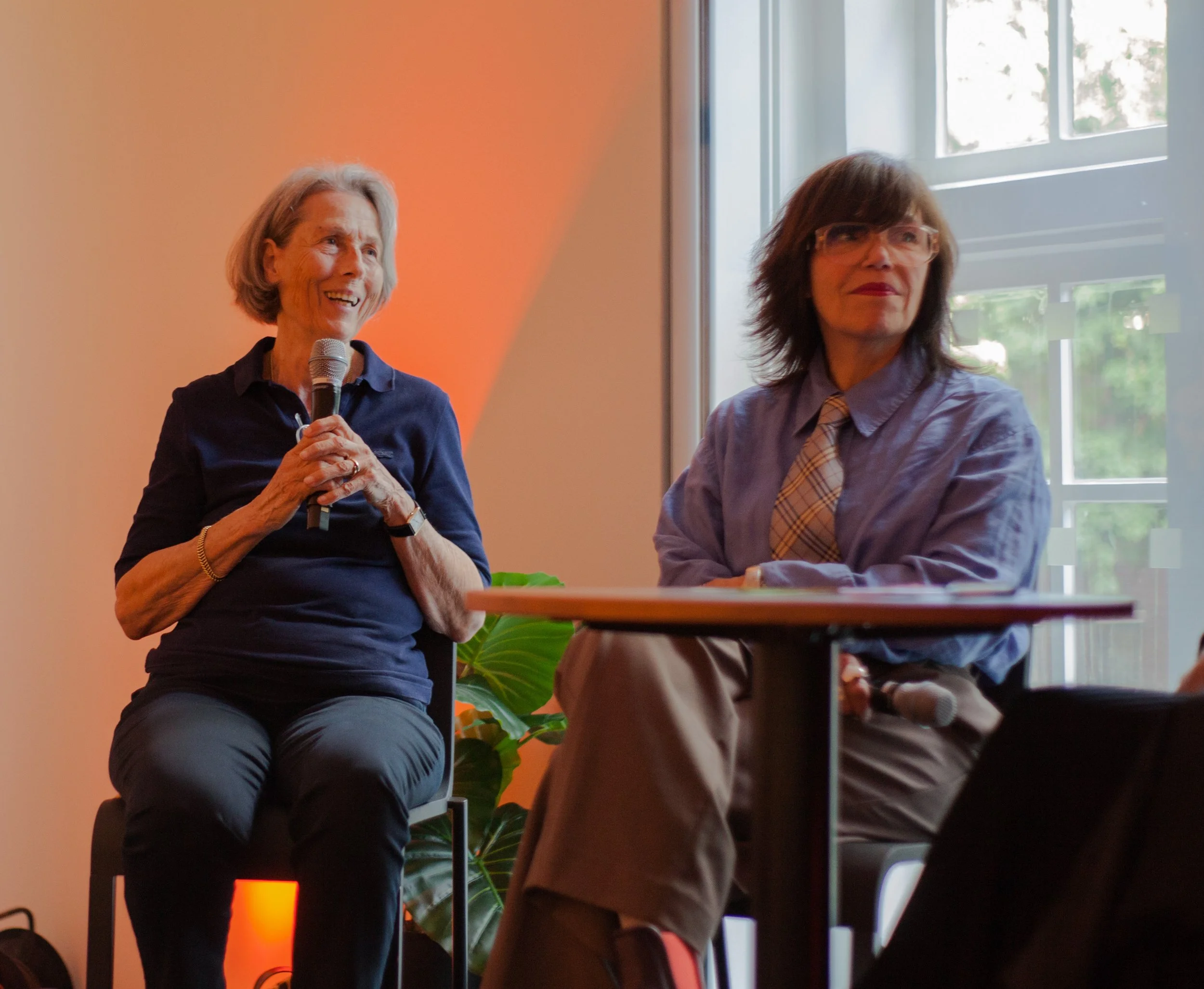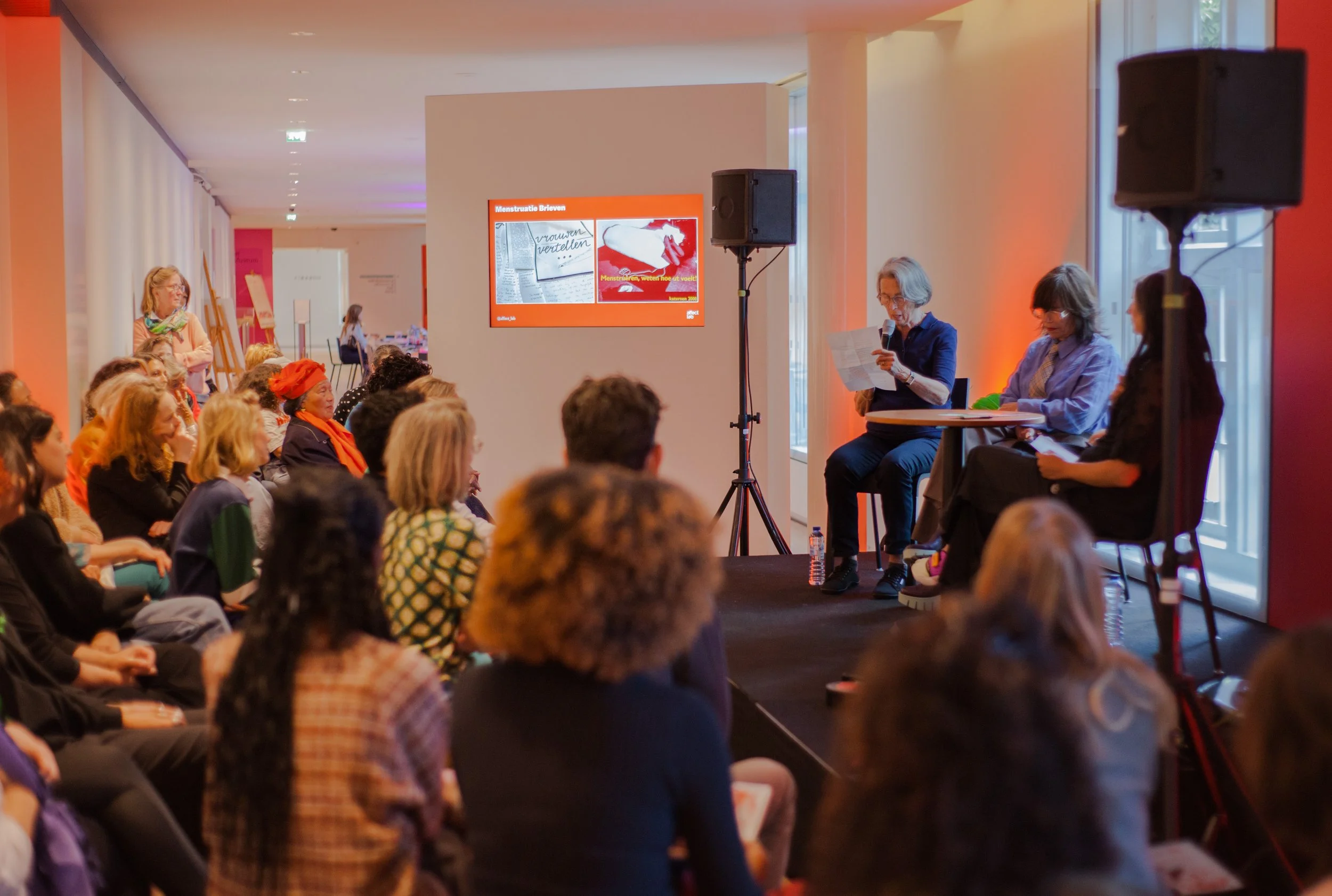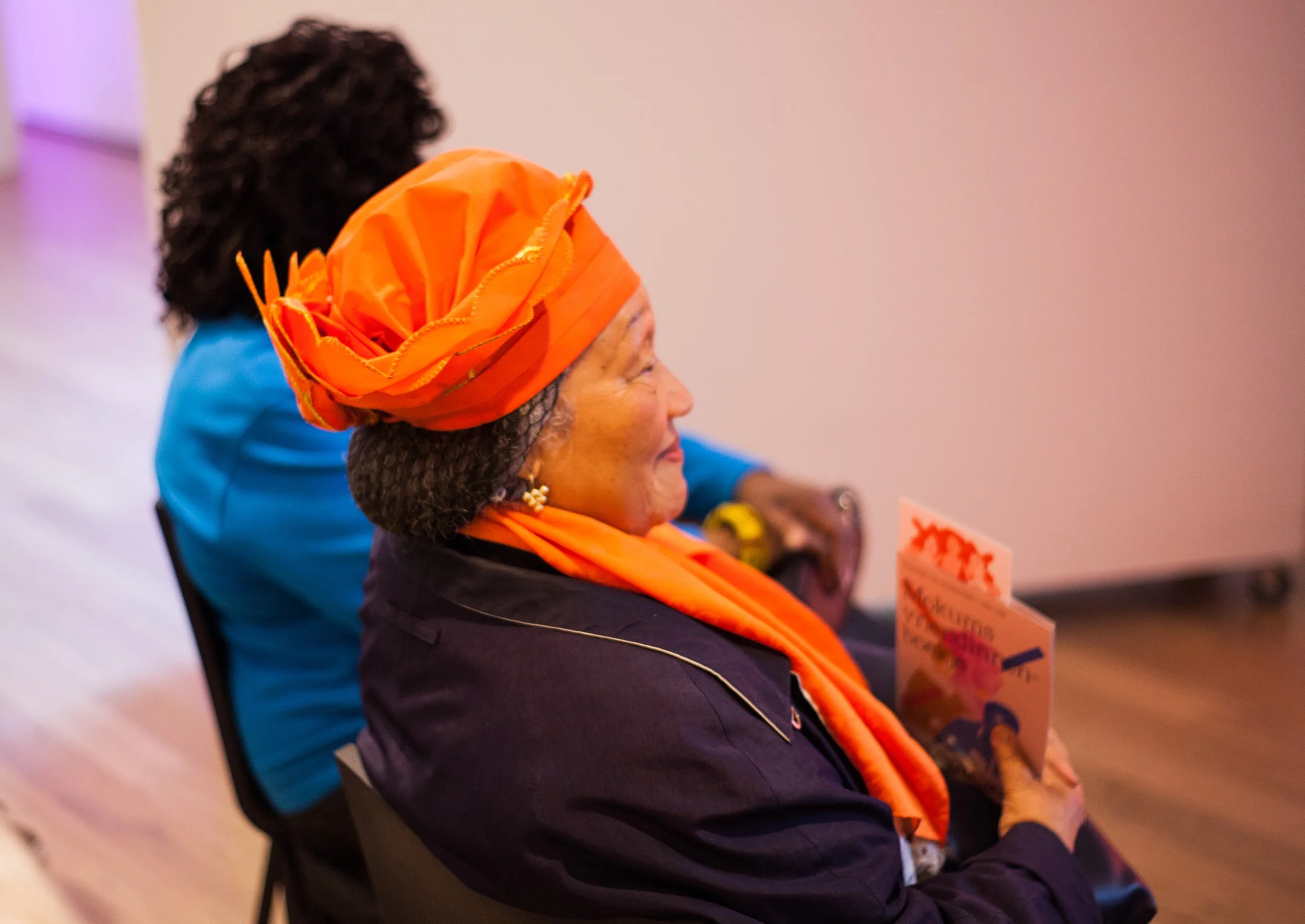Bloody Beautiful X Amsterdam Museum: Intergenerational Storytelling
Part of the BLOODY BEAUTIFUL programme by affect lab.
This event took place on May 23 2025, at the Amsterdam Museum.
In this unique collaboration between Bloody Beautiful and the Amsterdam Museum, we paid homage to some of the first Dutch women who documented and shared their experiences of menstruation.
The conversation emerged from the archives of Elly Brink: a trailblazer and the first period activist in Amsterdam. In the 1970s, she called on people to write her letters about their personal experiences with periods in order to gather more information on a subject that was very taboo. She received hundreds of letters. She created a revolutionary exhibition on menstruation and published a comic book on the same topic. This had never been done before.
More than 40 years later, researcher Debra Knoop was studying the history of period culture and came across the archive of letters menstruators had sent to Elly. Impressed by Elly’s work, Debra wrote an ode to her as part of the Vrouwen van Amsterdam - een ode exhibition (at Amsterdam Museum 14 Dec ‘24 - 31 Aug ‘25). This exhibition celebrates more than 100 women who have been important to the city – from inspiring artists to entrepreneurs to influential figures in working-class neighbourhoods.
The session was part of AM Laat, an evening context programme of this exhibition. The small area with soft chairs was packed with engaged participants. On stage were Debra Knoop, artist and Bloody Beautiful ambassador Petra Kroon and Elly Brink in conversation, moderated by Dymphie Braun. Both Elly and several people in the audience read aloud from the letters on menstruation. About feeling dirty, beautiful, proud, confused. After each letter, participants shared how they related and reflected on experiences across cultures and generations.
“I have 4 sisters, and it was tradition for us that when you got your period at thirteen years old, you were pampered. You would receive a friendship ring from your father, and a necklace from your mother. And you would be taken aside and it would be explained to you what it means for you. And then you feel proud. You've become a big girl... When we Surinamese are among ourselves, we talk about it openly and share even the most intimate things."




